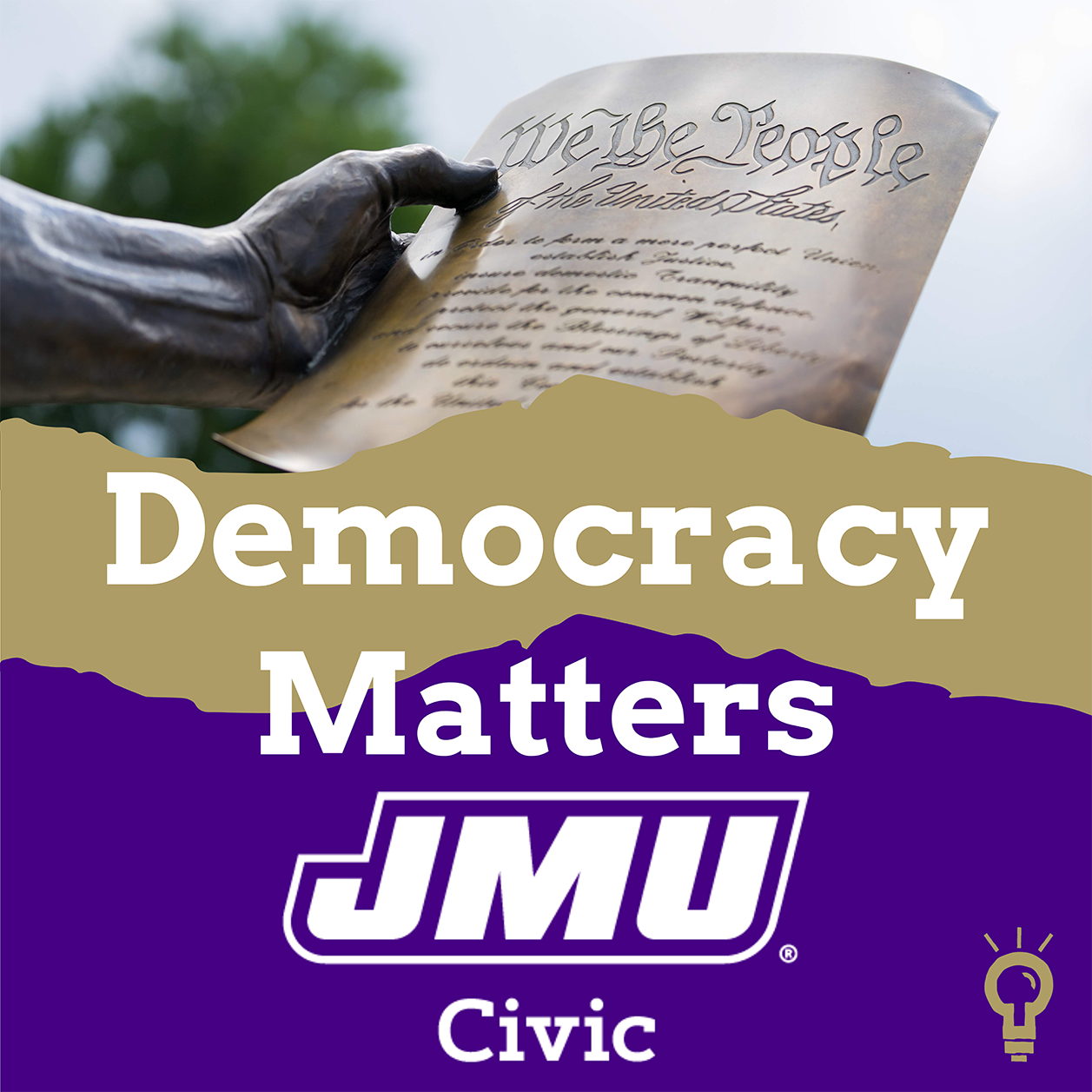Democracy Matters - Episode 29: Athletics and Social Justice
News
SUMMARY: This episode features a conversation about the role and agency of athletes, teams and athletic organizations in addressing racial injustice, systemic racism, and creating a more just and inclusive society and democracy.
There is a long history of athletes using their position to spotlight injustice and speak truth to power. In modern American sports, protests began in 1883. Among many recent examples:
- Tommie Smith and John Carlos standing on the 1968 Olympic podium shoeless and their fists above their bowed heads to silently protest racial discrimination;
- Toni Smith, a senior guard for the Manhattanville College women’s basketball team turning her back to the U.S. flag during the anthem in 2003 to protest the U.S. war in Iraq;
- Cavaliers teammates LeBron James and Kyrie Irving were among several NBA players who wore “I Can’t Breathe” T-shirts before their games on Dec. 8, 2014;
- San Francisco 49ers quarterback Colin Kaepernick refused to stand for the national anthem before his preseason debut against the Green Bay Packers on Aug. 26, 2016. “I am not going to stand up to show pride in a flag for a country that oppresses black people and people of color,” he said after the game. “To me this is bigger than football, and it would be selfish on my part to look the other way.”
- NASCAR driver Bubba Wallace, 26, successfully pushed NASCAR to ban confederate flags from events following the police killing of George Floyd.
- There have also petitions and calls to rename sports teams (DC) and stadiums (Florida State).
This episode features a conversation about the role and agency of athletes, teams and athletic organizations in addressing racial injustice, systemic racism, and creating a more just and inclusive society and democracy. Speakers include:
- Semaj Sorhaindo, JMU Football Student-Athlete
- Nikki Oppenheimer, JMU Women's Basketball Student-Athlete
- Arthur Moats, JMU alumn & linebacker for the Buffalo Bills, Pittsburgh Steelers, and Arizona Cardinals
- Ta’ Frias, JMU Track & Field Head Coach
- Jeff Bourne, Director of Athletics, James Madison University
- Roger Soenksen, Faculty Athletic Representative & Professor in JMU School of Media Arts & Design
Resources:
- Arthur Moats, Theory of Life: A guide to becoming a person of impact and inspiration
- Edge of Sports, a column about sports and social justice by Dave Zirin
- Simon C. Darnell & Rob Millington (2019) Social Justice, Sport, and Sociology: A Position Statement, Quest, 71:2, 175-187
- Christopher C. Towler, Nyron N. Crawford and Robert A. Bennett, “Shut Up and Play: Black Athletes, Protest Politics, and Black Political Action,” Perspectives on Politics, Vol 18, Issue 1, March 2020 , pp. 111-127
Discussion Questions:
- What does racial and social justice in sports and athletics look like to you?
- How does your race affect your perception of athletes, coaches or athletic organizations making a political stand or take a public position on racial and social justice issues?
- Why is there backlash when athletes take a public position on racial and social justice issues?
- How can you use your platform to help create a more just future for your sport?
- How should we support student athletes to make sure they are heard and can thrive on and off the field?
- If you could implement one policy at JMU or in your favorite sports institution that would help create a more inclusive athletic and campus experience what would it be? Are there policies you would remove or change?
- In what way can athletes and athletics help create a more inclusive society and democracy?
